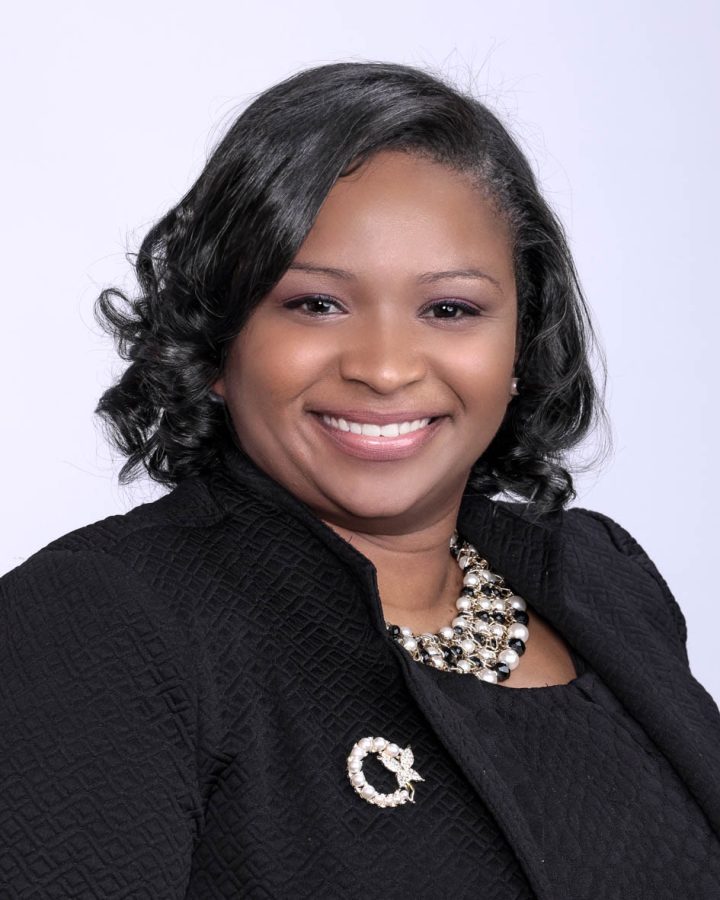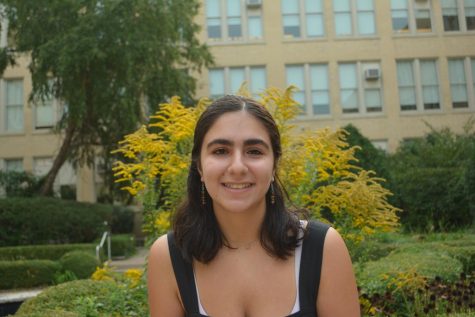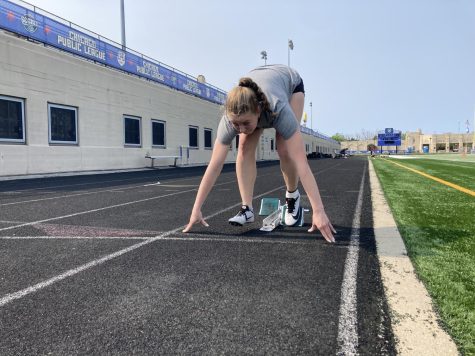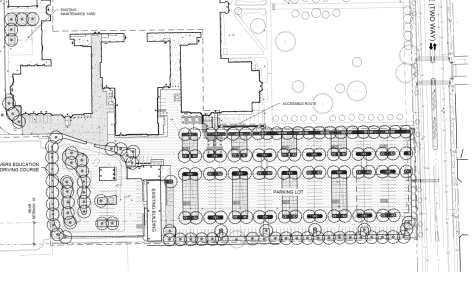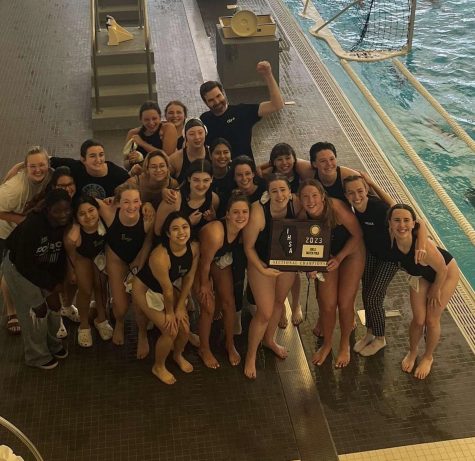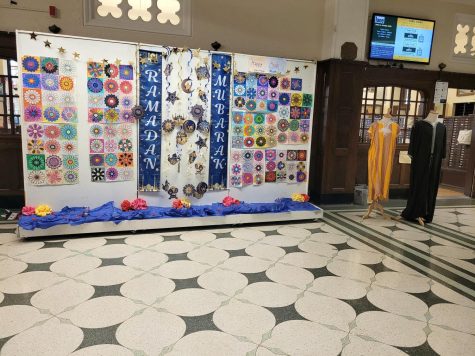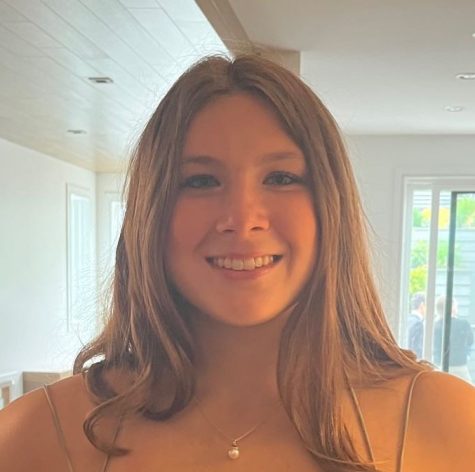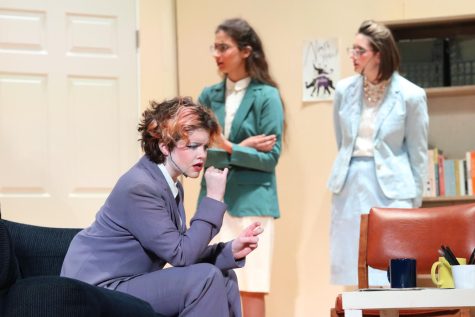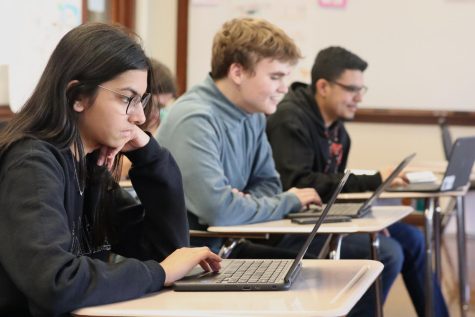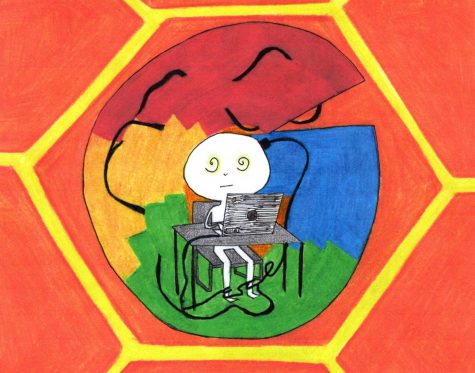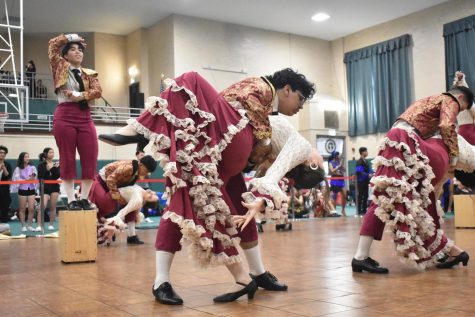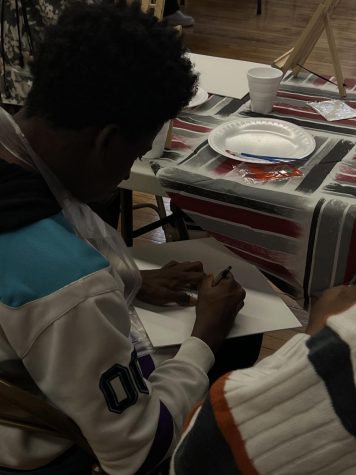Thompson reflects on first year as principal
May 19, 2022
During the first week of school, I interviewed Principal Edwina Thompson to reflect on the first week and the beginning of the school year. Now that the year is ending, I sat down with Ms. Thompson again to have a discussion about the successes and difficulties of this school year.
This interview was edited for length and clarity
So looking at your first year as principal as a whole, how would you say it was?
It’s been an exciting and fulfilling time that has come with its share of lessons, growth and fulfillment.
Do you feel that you didn’t get that type of excitement and fulfillment when you were an assistant principal?
No, I was very much so excited about my position as an assistant principal. I never lost my drive or desire to be in that role. I just knew what I wanted my next role to be. But I was willing to patiently wait for that to happen. I did not [apply] outside of Lane [for principal]. I was very happy in my position as an assistant principal. I was happy about the work I got a chance to do. And it’s really a lot of the same work — which is working with staff, working with kids, working with families.
So you mentioned that you’re always looking for your next goal. Before, you were looking at the principalship at Lane. Right now, what is your next goal now that you are principal?
My next goal actually is not necessarily a position thing — it’s to get my doctorate. So figuring out what’s going to be the right timing for starting that process — that’s my next goal. But no, I don’t have my eyes set on a different position at all.
Would you say that it’s because you feel a connection with Lane?
That could be part of it — just the connection that I feel with Lane, but also being a principal — this chair allows me to see over so much more. I still get a chance to do a lot of the nitty gritty stuff — put my hands to work and things that matter for our school, but it still allows me to tap into areas that I don’t think you get to do when you’re not in a local school. That doesn’t mean that one day I wouldn’t want to go beyond this. But right now, I’m not seeing that. But when I do get my doctorate — I will get my doctorate with superintendent certification. So that’ll be my next career-educational step.
And so overall, looking at this year, do you believe that it was successful?
I do, for many reasons. One, our students have had the opportunity to come back to this place and connect with their friends and their teachers. We’re seeing a lot of the policies that we’ve been putting in place to help students have additional chances at success. You can see it [in] the number of students who are not passing courses — all of those numbers are down right now. Even this idea of being able to retake and resubmit — and we’re trying to work through the kinks of it. But we’ve tried several things that have shown to be impactful in the lives of students. Our big emphasis as a school has been equity — in our interactions, policies. And we’ve done a lot with student voice — continuing to expand student voice but also teacher voice when it comes to budget and their ideas around how we should view policies. So that’s all part of relationship building. And despite us having to deal with masks, no mask, quarantining or no quarantining — we still continue to push. Our students try their hardest. They’re still participating in their activities. We were able to have International Days. It looked different for our school, but everyone who was in it kept saying they enjoyed the fact that more classes were able to see it during the school day as opposed to when that wasn’t an option. This might be small to some, but I remember being in a meeting and a student said, ‘We need microwaves, Principal Thompson. We want to heat up our food.’ And I’m like, ‘Well, I don’t think we can have microwaves, but we’ll look into it,’ and everyone was worried. And our students have treated them with care. There are times when there are spills, but they get cleaned up and taken care of, and it might seem small to some, but it made a big difference to a lot of students who actually utilize the lunchroom. But that comes out of emphasizing voice and teacher voice. Now, students don’t get everything that they’ve asked for — it just doesn’t work like that. But we listen, we come to a compromise and we move forward.
You brought up some specific changes that the school has made this year specifically with new grading policies. Do you think that that will continue to be implemented?
The retake and resubmission policy was started during COVID. The new part was that we asked all course teams to have a consistent policy that they started with, and we asked them to consider whether or not they wanted to do a grade floor. We’ve been evaluating throughout the year to see what works, what doesn’t work. And we’ve allowed teachers to have a hand in that because they’re in the classrooms with students. We looked at it at the semester, we’ll look at it again at the end of this year to see what actually did work. And we will share what we saw that actually worked from our end and go from there.
You’ve talked a lot about some of the successes that you’ve had this year. What about some of the difficulties?
We didn’t know who was going to be quarantined, who should be remote learning, how was the policy going to change when it came to masks. The majority of our building still wear masks, but some people don’t, so trying to kind of filter through making sure that we’re being kind in our responses when people are very afraid of COVID. So that balance of empathizing with the fact that I understand that you’re afraid, but I still need you to come to school, so trying to navigate through those waters, which change daily. One of the difficult parts is when you don’t have enough substitute teachers, which is something that people deal with across the district, or when you have leaves and you can’t find someone to actually fill that leave. So we’ve had to ask teachers within the building to take on a sixth class so that students are not left without a teacher, and sometimes it works out fine, and sometimes it doesn’t. But we’ve made it through.
Would you say another one of the difficulties would be the symbol search because there’s been a lot of pushback with that? We were supposed to have a new symbol last year, but now it’s been pushed back again.
I don’t believe that the symbol search is difficult. I think the difficulty is in helping others to understand that the LSC made a decision two years ago to retire the symbol, and that’s something that’s been happening across the nation. It’s not just Lane Tech. And so helping people to understand why but also navigating through the sense of pride. I was a Lane grad, I know how we all felt: we never disrespected anybody. We didn’t feel like we were being disrespectful. But just because you don’t feel like that you’re disrespecting someone, it doesn’t mean that you haven’t. So helping people to understand that we are still Lane Tech and that we still have a sense of pride.
You mentioned the LSC a couple times. What would you say about working with the LSC closely this year?
They are a dedicated group of volunteers who only want what’s best for our school — not just for their children, not just for the staff who are on the team, but they want it for our entire building and that also includes what’s best for me too. They are so committed to the processes that we have in place and making sure that it makes sense. And I appreciate that. I also get a chance to work with the Friends of Lane. And that group is made up mostly of parents. But there are some people who participate with Friends of Lane who are part of the community, who have a vested interest in seeing Lane succeed and Lane students have opportunities. They are volunteers who not just give their time, but they sacrifice and provide monetary support to our building for programs, for our students, for teacher grants, and they do all of that out of the kindness of their hearts.
What about the different student committees?
Whenever we need to change something, I’m always like, where are our student leaders? Let’s get them involved. Let’s see what they have to say. Our BIPOC committee still works with our director of culture and climate [Gabriela Escobar]. There’s the advisory committee, and they still create those lessons. And then there’s the equity student committee that still works with Ms. [Sarah] Hanly, and I believe Ms. [Mollie] Hart. So there are a lot of opportunities for the student body. But then we also have an open door. So I’ve had some students come to me outside of those committees, like the students who wanted to do a fundraiser for Ukraine. And then we got on it. So students don’t just go through their leadership. They typically will email us, and we meet, we talk about it, figure out who the staff members are that should be involved and then go from there.

